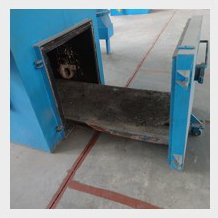Kenya is facing a hospital incinerator crisis that poses a significant threat to public health and the environment. The country’s hospitals are struggling to manage medical waste, and the lack of proper incinerators has led to a dangerous buildup of hazardous materials. As a result, there is an urgent need for a comprehensive solution to address this critical issue.
The current situation in Kenya’s hospitals is alarming. Many medical facilities lack the necessary infrastructure to safely dispose of medical waste, including incinerators that meet international standards. This has led to the accumulation of infectious waste, such as syringes, bandages, and other biohazardous materials, which pose a serious health risk to hospital staff, patients, and the community at large.
In addition to the health risks, the improper disposal of medical waste also has a detrimental impact on the environment. Toxic emissions from substandard incinerators can contribute to air pollution, soil contamination, and water pollution, endangering ecosystems and local communities. The lack of proper disposal facilities also hinders the country’s ability to effectively manage and control the spread of infectious diseases.
To address the hospital incinerator crisis in Kenya, it is crucial to implement a comprehensive set of solutions. First and foremost, the government must allocate adequate funding and resources to support the procurement and installation of modern, environmentally friendly incinerators in hospitals across the country. These incinerators should meet the highest international standards for medical waste management, ensuring the safe and efficient disposal of hazardous materials.
Furthermore, there is a need for robust regulations and enforcement measures to ensure that hospitals comply with proper waste disposal protocols. This includes training healthcare staff on the correct handling and segregation of medical waste, as well as regular monitoring of incinerator operations to mitigate potential environmental and health risks.
In addition to investing in incineration infrastructure, Kenya’s healthcare system should also explore alternative waste management methods, such as autoclaving and steam treatment, to supplement incineration and reduce the volume of hazardous waste generated. This holistic approach to medical waste management will not only promote sustainability but also improve overall healthcare standards in the country.
Lastly, public awareness and education campaigns are essential to promote proper waste disposal practices among healthcare workers and the general public. By empowering individuals to understand the importance of responsible waste management, Kenya can create a culture of environmental stewardship and ensure the long-term success of its medical waste disposal initiatives.
In conclusion, the hospital incinerator crisis in Kenya poses a significant public health and environmental threat that demands urgent attention and action. Implementing comprehensive solutions, including the installation of modern incinerators, robust regulatory measures, and community education, is essential to safeguard public health, protect the environment, and promote sustainable healthcare practices in the country. The government must prioritize this issue and collaborate with all stakeholders to address the nation’s hospital incinerator crisis effectively.



